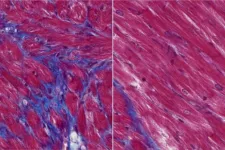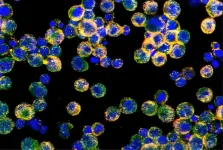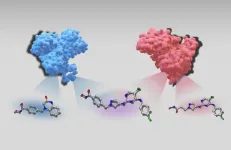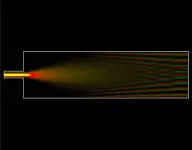Four leading cancer research organizations in the United States and Canada announce the opening of patient enrollment to myeloMATCH, a unique portfolio of clinical trials to test precision medicine treatments for adults with acute myeloid leukemia (AML) or myelodysplastic syndrome (MDS).
The Alliance for Clinical Trials in Oncology, Canadian Cancer Trials Group, ECOG-ACRIN Cancer Research Group, and SWOG Cancer Research Network are collaborating within the National Cancer Institute (NCI) National Clinical Trials Network (NCTN) to design and lead the trials. They expect to open the trials at hundreds of cancer care sites across the two countries.
The myeloMATCH program will accelerate precision medicine in myeloid malignancies and develop new therapies for patients with these diseases. Its portfolio of primarily phase 2 studies is designed to identify which promising treatments warrant larger, definitive clinical trials outside of myeloMATCH.
Three myeloMATCH treatment trials are now open, and numerous others are in development and will open in the coming months. The myeloMATCH screening protocol is now enrolling adults newly diagnosed with AML or MDS. Researchers hope to eventually enroll 5,000 or more patients.
“myeloMATCH provides a portfolio of biomarker-driven treatment trials that adult patients newly diagnosed with AML or MDS will enroll to sequentially over their entire treatment journey,” said Harry P. Erba, MD, PhD, of Duke University School of Medicine. Erba is co-chair of myeloMATCH’s senior science council. “At each step along that journey, the goal is to continually reduce the patient’s tumor burden, to target residual disease more effectively, and ultimately cure more patients of the disease.”
Acute myeloid leukemia is a type of blood cancer in which the bone marrow makes excess numbers of abnormal immature white blood cells known as myeloblasts. Myelodysplastic syndrome refers to a group of cancers in which immature blood cells in the bone marrow do not mature or become healthy blood cells.
“The activation of the myeloMATCH program represents the culmination of a monumental effort by the National Cancer Institute and the North American cooperative oncology groups to bring precision medicine to the diagnosis and treatment of the challenging myeloid malignancies, acute myeloid leukemia and myelodysplastic syndromes,” said Mark R. Litzow, MD, of Mayo Clinic. Litzow is co-chair of myeloMATCH’s senior science council.
“The increasing understanding of the genetic heterogeneity of these diseases and the development of treatments that target these genetic abnormalities has brought us to this opportunity to more precisely and effectively treat these disorders in a comprehensive manner that focuses on care from diagnosis to cure.”
Formally known as the NCI Myeloid Malignancies Molecular Analysis for Therapy Choice program (ClinicalTrials.gov NCT05564390), myeloMATCH offers patients the most advanced biomarker testing at no cost. This testing looks for certain genomic and molecular features in a patient’s blood and bone marrow samples that may be driving their leukemia and which may serve as specific targets for treatment.
Test results for newly diagnosed patients are returned to the patient’s doctor within about three days, quickly enough that they can be used to assign the patient to the most appropriate myeloMATCH treatment trial for their initial course of therapy. Current commercially available testing options for these patients typically take much longer to process results.
Patients also have a standard-of-care treatment option available if their healthcare site does not have a myeloMATCH trial open that matches the patient’s biomarkers. Enrolling on the standard-of-care option (known as the Tier Advancement Pathway) means the patient can later have their biomarkers tested again and may be able to join a genetically matched myeloMATCH trial at a later stage of treatment.
“The opening of the first of the myeloMATCH suite of trials is incredibly hopeful news for current and future patients facing myeloid cancers, and for their families,” said Gail Sperling, MPH, lead patient advocate on the myeloMATCH senior science council. “This is in part because of the amazing extent of collaboration on these trials, by many of the world’s top experts on AML and MDS. The myeloMATCH program is ideally positioned to rapidly find new treatments that will transform the lives of people with these diseases."
myeloMATCH’s portfolio of trials is structured into four “tiers,” with each tier providing trial options at a different stage along the patient’s cancer treatment journey:
Tier 1 trials offer newly diagnosed patients initial induction therapy to significantly reduce the patient’s disease burden
Tier 2 trials treat patients who have residual disease after initial therapy
Tier 3 trials offer consolidation therapy or stem-cell transplant
Tier 4 trials treat progressively lower levels of residual disease that may remain
As a patient proceeds through successive stages of treatment for AML or MDS, their disease burden is often progressively reduced. One goal of myeloMATCH is to develop therapies that more precisely target this progressively reduced residual disease. In Tier 4 trials, myeloMATCH will use advanced lab tests to identify ultra low-level measurable residual disease (MRD) to test whether additional treatments can improve patient outcomes.
myeloMATCH represents the core NCI clinical trial strategy for myeloid malignancies going forward and is built on an unprecedented level of collaboration among the NCTN cooperative groups. By tracking a patient’s progress and biomarkers through all treatment stages starting at initial diagnosis, myeloMATCH will also make it possible to evaluate the clonal evolution of AML over the entire course of a patient’s treatment.
Statements by NCTN cooperative group representatives leading myeloMATCH:
“The myeloMATCH precision medicine initiative will make the most cutting-edge rapid diagnostics and novel therapeutics available to patients with newly diagnosed myeloid malignancies in every corner of the United States and Canada,” said Richard Stone, MD, Alliance for Clinical Trials in Oncology. “Clinical investigators are very grateful for the leadership provided by the NCI, particularly Drs. Meg Mooney and Richard Little, in nurturing this program which is likely to improve the outcome for a diverse group of patients with a difficult-to-treat group of blood cancers.”
“CCTG is thrilled to be a partner in the development and implementation of the myeloMATCH trials for AML and MDS. This collaboration affords Canadian cancer centers, investigators and, most importantly, our patients, the opportunity to participate in the most innovative approaches to diagnosis, treatment and follow-up,” said Sarit E. Assouline, MDCM, MsC, FRCPC, of McGill University. Dr. Assouline is hematologic disease site chair for the Canadian Cancer Trials Group. "myeloMATCH is a dynamic platform that brings together experts from across North America and allows Canadians to be on the cutting edge of new developments in AML and MDS.”
“Over the last several years, the NCI and the North American cooperative group investigators have been working to design a platform that will allow for state-of-the-art precision medicine diagnostics and treatment. The opening of these myeloMATCH trials heralds a new era in the treatment of myeloid malignancies,” said Selina M. Luger, MD, FRCPC, of the University of Pennsylvania's Abramson Cancer Center. Dr. Luger chairs the ECOG-ACRIN Cancer Research Group's leukemia committee.
“MyeloMATCH is a fantastic opportunity to bring the advances of drug development, genetics, and diagnostics to large numbers of patients with AML or MDS. What we learn from myeloMATCH may have a major impact on the future of clinical trials in leukemia and beyond,” said Jerald P. Radich, MD, of Fred Hutch Cancer Center and the SWOG Cancer Research Network. Dr. Radich is study chair for the core MYELOMATCH screening protocol.
VIRTUAL MEDIA BRIEFING
WHAT: Learn more about the myeloMATCH initiative, gain insights from some of the study leaders, and hear from a patient advocate. The information from the media briefing is embargoed until Wednesday, October, 23, 2024, at 11:00 a.m. ET. By registering and attending, you are agreeing to honor the embargo.
WHO:
Richard F. Little, M.D., NCI coordinator for myeloMATCH
Jerald Radich, M.D., myeloMATCH Laboratory Assays & Informatics Group co-chair
Gail Sperling, M.P.H., myeloMATCH patient advocate
WHEN: Tuesday, October 22, 2024, at 11:30 a.m. ET
WHERE: Register by emailing ncipressofficers@nih.gov
###
Resources:
“Umbrella Trial in Myeloid Malignancies: The Myelomatch National Clinical Trials Network Precision Medicine Initiative.” Little, RF, et al. Blood (2022) 140 (Supplement 1): 9057–9060. https://doi.org/10.1182/blood-2022-169307
“The New NCI Precision Medicine Trials.” Harris, LN, et al. Clinical Cancer Research, Dec 1, 2023 29(23):4728-4732. https://doi.org/10.1158/1078-0432.CCR-23-0917
myeloMATCH Overview: https://swog.org/myeloMATCH-overview
MYELOMATCH Screening Protocol: https://www.cancer.gov/research/participate/clinical-trials-search/v?id=NCI-2022-07006
myeloMATCH treatment trials now open (a full list is at swog.org/myelomatch-treatment-trials):
A study comparing cytarabine + daunorubicin versus cytarabine + daunorubicin + venetoclax versus venetoclax + azacitidine in adults younger than 60 with intermediate-risk AML (MM1YA-CTG01 AL6 or NCT05554393)
A study comparing usual chemotherapy to four experimental combination treatments in adults younger than 60 with high-risk AML (MM1YA-S01 or NCT05554406)
A study that tests adding gilteritinib to the usual treatment of azacytidine plus venetoclax in patients with AML who have mutations in the FLT3 gene and who are older or are otherwise not candidates for intensive chemotherapy (MM1OA-EA02 or NCT06317649) END






